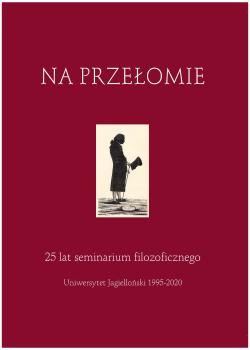Edmund Husserl. Redukcja do absolutu .......... 391
Synopsis
EDMUND HUSSERL. REDUCTION TO THE ABSOLUTE
The article addresses the problem of absolute consciousness, which according to the creator of phenomenology – Edmund Husserl – is a condition for the existence and emergence of the world and the ego. In the article the author will try to show that the constitution of meaning does not apply to personal ego, transcendental I, nor transcendental intersubjectivity. We are dealing here with a dual understanding of self-identity. In addition to the personal ego that is associated with growth and education (which is subject to constant correction) there is also the transcendental I, which is the center to which I refer all my actions of consciousness. The unity in which the transcendental self behaves is therefore different from the oneness of the personal ego. The finite, already constituted, period of my own self as well as other self, cannot belong to the constituing level in which the absolute functions. I cannot perceive Others as meaningful to the world because they are given with the transcendence and horizontality of the world. The Absolute is the basis that goes beyond every ego, which always suggests Others. The condition of the constitution of things as well as the experiences themselves is the absolute consciousness, the experiences of which are pre-individual and universal. Studying the problem of the absolute is not just a way to present things, but a way to capture pure phenomena as absolute data. In Husserl’s works, we are dealing with descriptions of laws and processes through which pure consciousness embodies the world and the ego. The level of original factuality is the level at which there is no ego, which could be a solipsistic point of reference. The reduction reveals an absolute stream that in order to exist does not need any constituted outcome of its actions. The constitutive basis can be considered independent because there are no specific connections behind its constituted results. This is the field of experience that precedes the constitution of things. The Absolute, however, is not something outside the world, but it is the ultimate subjectivity that is realized in humanity. In order to fully understand reduction and uncover absolute consciousness, it should be discovered not by a human, but from the perspective of what is objectivised in human subjectivity. The reduction must be a non-solipsistic reduction that goes beyond the individual.





